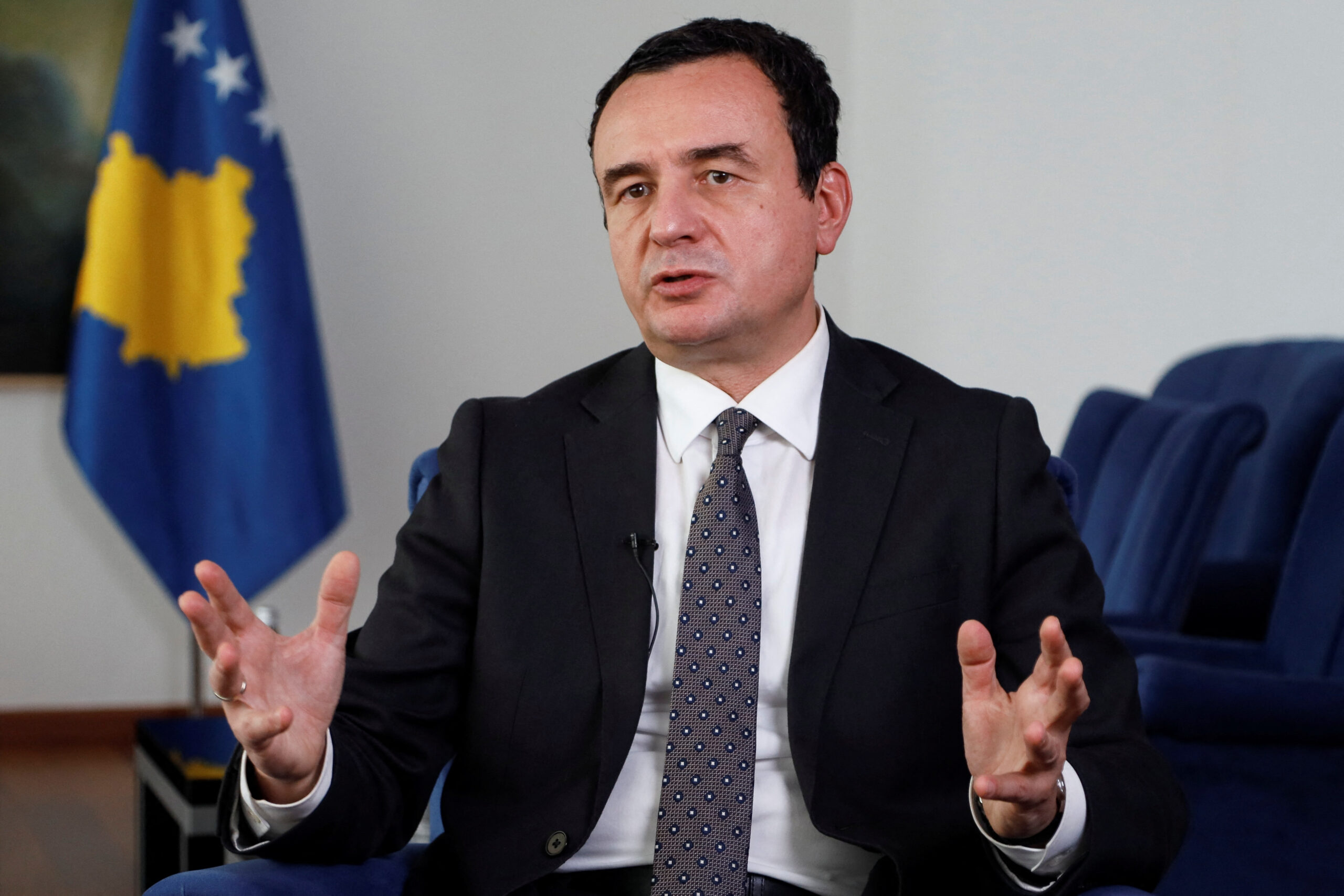Kosovo PM warns of Serbian aggression amid rising tensions and internal challenges

Kosovo’s Prime Minister Albin Kurti has warned of Serbia’s alleged ambitions to destabilize the Western Balkans, accusing Belgrade of pursuing a renewed agenda of regional hegemony under the guise of the “Serbian World” project. The remarks, reported by the Kosovo daily Koha Ditore, come amid rising stalled negotiations between Kosovo and Serbia and a flurry of accusations from both sides.
Why is this important: Kurti’s statement underscores the enduring tensions in the Western Balkans where the dialogue between Serbia and Kosovo has practically been frozen. It also highlights Kosovo concerns over Serbia’s growing assertiveness. Framing Belgrade’s actions as a continuation of the “Greater Serbia” project, Kurti warned that Serbia poses a direct threat not only to Kosovo but also to the broader region, including Bosnia-Herzegovina and Montenegro. The remarks are an attempt to mobilize international support. But they are also seen as an attempt by Kurti to rally his base and reinforce his nationalist credentials ahead of Kosovo’s 2025 elections, where he is considered the favorite despite an increasingly active opposition.
Serbian claims and Kosovo’s rebuttal: Serbian President Aleksandar Vučić and the Ministry of Defense have alleged that heavily armed Kosovo police crossed into Serbian territory in the village of Čirkoviće in Leposavić municipality, accusing Kurti of orchestrating the incident as a deliberate provocation to incite NATO involvement. Vučić warned of a stronger Serbian response in the future, claiming, “Next time, Serbia will respond in full accordance with military regulations.”
Kosovo police have dismissed these accusations as disinformation aimed at destabilizing Serb-majority areas in northern Kosovo. “These allegations are false and baseless,” Kosovo police stated, accusing Serbian officials of deliberately spreading fear and undermining regional stability.
NATO’s KFOR peacekeeping mission has refrained from confirming or denying the allegations but noted that the situation along the border remains calm. In a statement to Radio Free Europe, KFOR said it maintains a “visible and flexible presence” to respond to any potential security risks in line with its UN mandate.
Kurti’s recurring warnings and the 2025 elections: Kurti’s warnings about Serbia’s ambitions are a recurring theme in his rhetoric, often used to draw attention to the ongoing regional tensions and the historical threat posed by Belgrade. Observers note that such statements are also a strategic way for Kurti to mobilize domestic support and reinforce his nationalist image as Kosovo approaches its 2025 elections. Despite growing isolation on the international stage and criticism from former allies, Kurti remains a strong favorite in the upcoming polls, with his base responding positively to his firm stance against Serbia.
Political analysts, however, point out that these warnings serve not only as a call to action but also as a tool to maintain his political dominance by reminding voters of Kosovo’s past struggles and the need for strong leadership to counter Serbia’s perceived ambitions.
Internal criticism and growing isolation: While Kurti has a solid base of support his government has faced growing criticism at home and abroad. President Vjosa Osmani, once an ally, has publicly criticized his handling of key issues, including strained relations with Western partners. In a recent parliamentary session, Osmani emphasized the importance of preserving alliances with the United States and the European Union, warning that provocations risk undermining Kosovo’s international standing.
Adding to the unease, Kosovo faces the possibility of a Donald Trump presidency in the United States, which could shift Washington’s approach to the Balkans. Trump’s past perceived alignment with Serbian interests has raised concerns in Pristina, especially as Kurti’s confrontational approach has left Kosovo increasingly isolated on the global stage.
Broader implications and regional risks: The tensions between Kosovo and Serbia are unfolding against the backdrop of larger geopolitical shifts, including the war in Ukraine. U.S. expert Daniel Serwer has warned that a divided global order could embolden irredentist ambitions in the Balkans, with Serbia potentially eyeing northern Kosovo and Republika Srpska seeking secession from Bosnia-Herzegovina.
While the Biden administration has consistently opposed redrawing borders, calling instead for dialogue, Kurti’s claims highlight the persistent challenges in reaching a sustainable resolution. Efforts to redraw borders, such as those floated in 2018, were strongly opposed by key EU countries like Germany and remain off the table.
What’s next: As Kosovo braces for its elections in 2025, Kurti’s strategy of focusing on the Serbian threat appears aimed at consolidating his base and rallying nationalist sentiment. However, the growing regional tensions and internal divisions within Kosovo highlight the challenges his government faces. Serbia’s accusations and NATO’s cautious responses further underscore the fragility of the situation, leaving the Western Balkans at a crossroads between peace and renewed instability.


